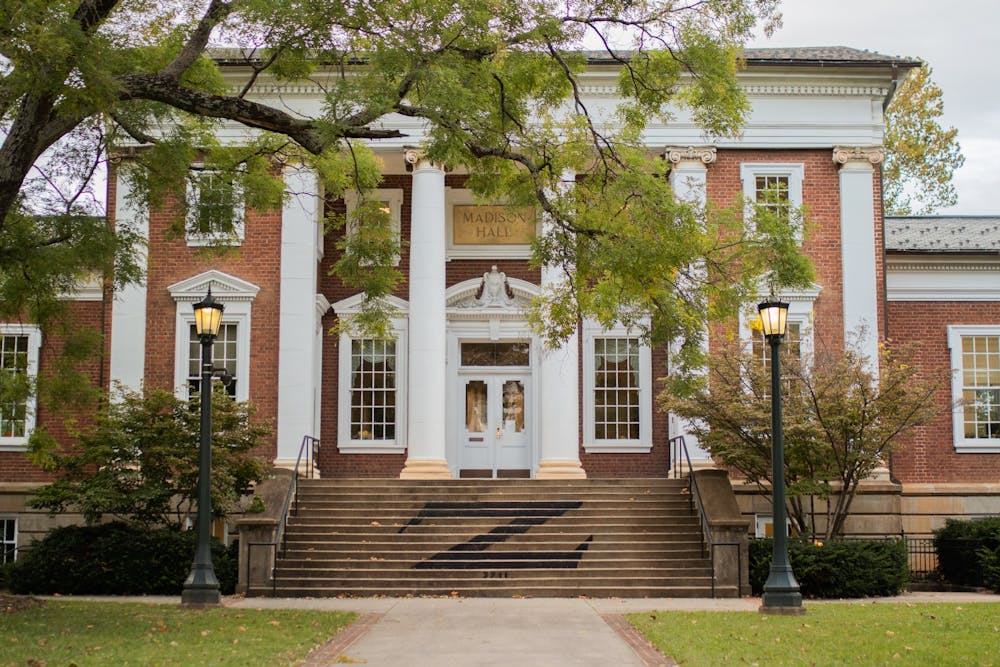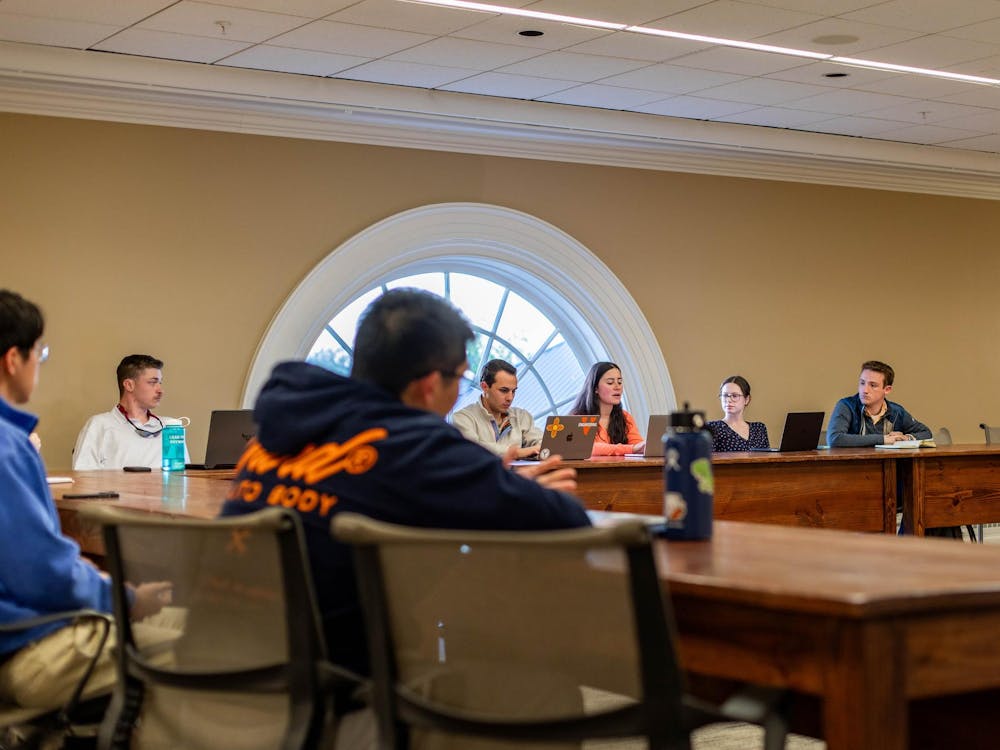New members of University President Jim Ryan’s Student Advisory Council named student well-being and representation for transfer students as their reasons for applying to the Council. Members plan to improve University communication with students, provide better financial support for student health-related matters and strengthen the relationships between individual schools in the Council’s first year.
Ryan announced the names of the twelve members who comprise his new Student Advisory Council Oct. 17.
The Council includes 10 third and fourth-year undergraduate students and two graduate or professional students — third-year College students Hamza Aziz, Zach Hallock-Diaz, Lauren Horan, Jonathan Marter and Lizzie Weschler, fourth-year College students Grant Blumberg and Carlos Rodriguez, fourth-year Commerce students Nellie Philpott and Tianxiao Yao, fourth-year Education student Quana Dennis, graduate Engineering student Russell Hawes and Law student Annie Somerville.
Jonathan Bowen, special advisor to the president for external affairs, said the Council will have its first formal meeting Monday and will begin holding regular monthly meetings next semester.
“This is a pilot year for the new Council, and President Ryan plans to reassess at the end of this first year,” Bowen said in an email to The Cavalier Daily.
Marter was one of the students selected to serve on the Council and said he looks forward to providing Ryan with input on how his decisions will affect students.
“I applied to the Student Advisory Council because during my time at U.Va., I have been on the receiving end of many decisions made directly by administrators,” Marter said in an email to The Cavalier Daily. “From students' past reactions to regulations during [COVID-19] to the demonstrations surrounding the release of information about University incidents, we see that there are areas for improving the well-being of students on Grounds.”
Marter said he hopes to improve communication between the University and the student body, financial support for student health issues and cohesiveness between different schools during his time on the Council.
Bowen said Council members will not serve as representatives for their respective schools. Instead, they will participate in discussions with Ryan “on issues related to the student experience” and serve as “open lines of communication.”
Dennis, another student appointed to the Council, said that as a transfer and first-generation student, he hopes to help students with similar paths to the University.
“I want to be a sounding board for transfer students, and I would like to increase the engagement and presence of transfer students, especially students from the Virginia Community College System,” Dennis said in an email to The Cavalier Daily.
Ryan announced the Council’s creation in an Instagram post Sept. 12, and applications were due Sept. 23. Comments on the post praised Ryan’s decision, and gave examples of potential topics for the Council to explore — including first-year student advising, diversity initiatives and more.
Ryan’s idea for the Council has been in the works “for some time,” according to Bowen, mirroring many of the student-outreach initiatives which Ryan has undertaken during his time at the University — such as Runs with Jim, office hours and Lunches on the Lawn.
Not all members of the student body are convinced of the need for a Council, however.
Ceci Cain, president of Student Council and graduate student, said she wonders why Ryan wants to establish a new group to advise him on student matters when Student Council’s representative body already exists.
“The Student Council representative body already is and has been, for decades, serving as the advocacy group that President Ryan is seeking here,” Cain said in an email to The Cavalier Daily. “Representative elections are already baked into the long-standing system of student self-governance.”
Cain proposed that the Student Council representative body could also serve as an advisory board to Ryan as a way to honor students and their agency.
Bowen said Student Council remains an important resource for the president, adding that the Advisory Council is not intended to replace or replicate Student Council, but to act as another way to build relationships with students.
“Student Council is an invaluable resource and sounding board for President Ryan, and that’s why, over the years, he has continued to meet with the StudCo president on a regular basis,” Bowen said.
When planning the Advisory Council, Bowen said the office wanted to give “a broad range of students” the opportunity to get involved, not those who were “already established in leadership positions.”
“With an application process that was open to all third and fourth-year students and graduate and professional students, we think we have formed a council that complements — rather than duplicates — other student leadership groups and will bring a broad and diverse view of the student experience to the group’s conversations,” Bowen said.
Still, Cain said she agrees that students need to be better integrated into the University’s decision-making process.
“I do hope that this Council is productive in bringing forth the true and diverse student experience and does not simply serve to undermine pre-existing student-run institutions,” Cain said. “It’s also my hope that President Ryan’s engagement with student issues begin, and do not end, with this Council.”






